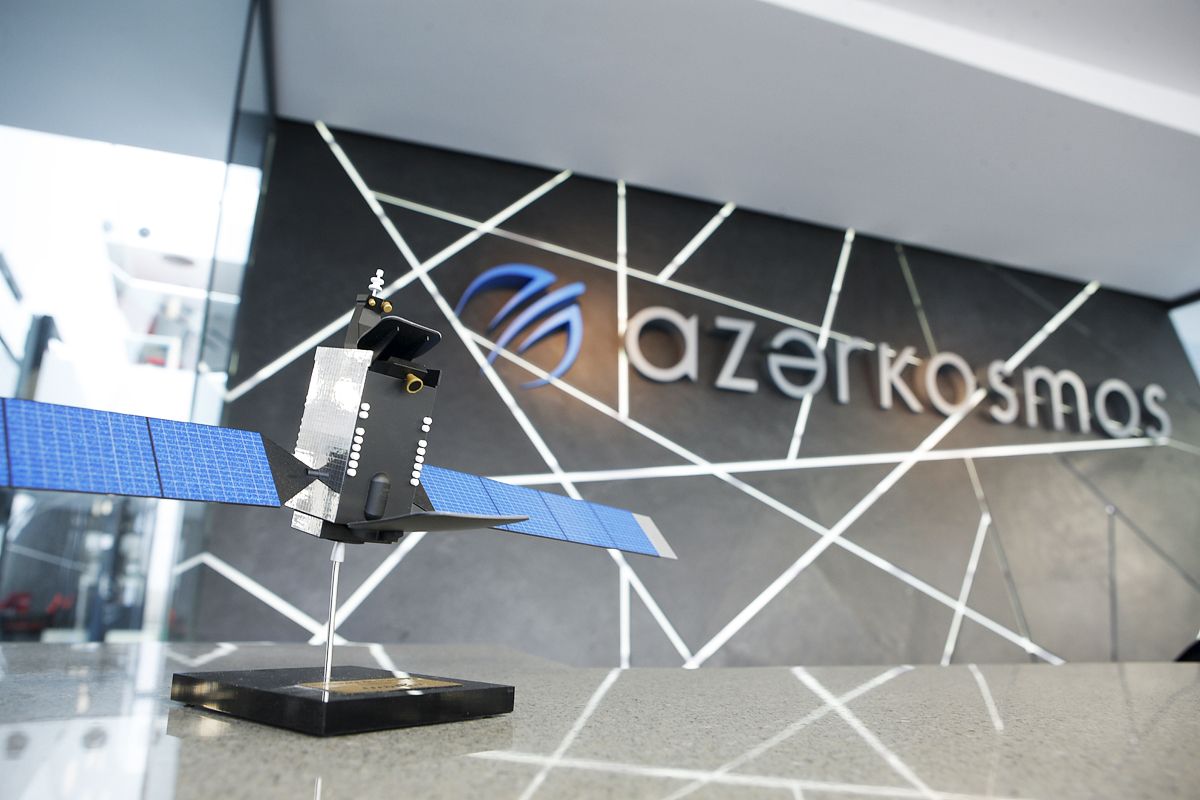Azerbaijan’s ascent in space: Strategic cooperation and regional leadership

As the global space economy accelerates toward a projected $1.8 trillion valuation by 2035, Azerbaijan is carving out a strategic role not only as a participant but as a regional driver in the transformation of space technology. The Space Technology Conference 2025 (STC2025), held in Baku, underscored this growing influence by assembling over 400 participants from 35 countries, representing both state and private stakeholders in space development.
This unprecedented gathering highlighted how Azerbaijan, through its space agency Azercosmos, is aligning itself with global trends in Earth observation, satellite communications, and public-private cooperation to cement its place in the 21st-century space race.
Strategic partnerships: Knowledge transfer as a catalyst
At the core of Azerbaijan’s momentum is a strategic embrace of partnerships, particularly with technologically advanced nations and companies. Sebastian Misurak, Strategy Manager at Hungary’s 4iG Space and Defense Technologies, emphasized during his panel that large-scale satellite programs like "FooSat" require transnational collaboration to be viable.
"It is impossible to implement projects of this scale alone… our cooperation with Azercosmos is very valuable in this regard," said Misurak.
This collaboration reflects a growing consensus: the future of space is not defined by isolated national achievements but by shared ecosystems of innovation and interoperability. The plan to co-develop infrastructure and launch satellites across GEO and LEO orbits underscores Azerbaijan’s intention to move from service consumer to co-creator in the global satellite industry.
Space as an engine for regional development
The conference also highlighted the broader vision of space as an enabler of economic and social transformation, especially in Central Eurasia. Ilhami Aygun, President and CEO of MonacoSAT, framed space not as a distant frontier, but as a crucial layer of regional digital infrastructure.
"Satellite communications can help states strengthen their positions, eliminate digital inequality and stimulate socio-economic development," Aygun noted.
For Azerbaijan and its neighbors, this framing is especially relevant. With vast rural territories and challenging terrain, satellite communications and Earth observation offer cost-effective alternatives to traditional infrastructure, enabling agricultural optimization, resource management, and disaster response.
Azerbaijan’s technological leap
During the conference, Azercosmos Acting Chairman Dunay Badirkhanov announced that Azerbaijan is preparing to launch a new generation of satellites with advanced Earth observation and telecommunications capabilities. This marks a qualitative leap for Azerbaijan’s space portfolio, positioning it as a potential hub for regional connectivity.
The country’s recent digital infrastructure achievements—such as a 13-fold increase in household access to fixed broadband—signal a robust internal capability to support and benefit from space technologies.
"These infrastructure reports are also reflected in international rankings," noted Deputy Minister Sameddin Asadov, pointing to Azerbaijan’s improved standing in the Global Cybersecurity Index.
This internal growth creates fertile ground for adopting satellite services in governance, education, agriculture, and public safety.
A regional constellation in the making
The conference further revealed ambitions for broader regional integration in space exploration. Efforts to form a Turkic Space Partnership, including cooperation among Kazakhstan, Uzbekistan, Turkey, and Azerbaijan, indicate an emerging geopolitical block in the space domain.
Misurak from 4iG also hinted at deeper initiatives, including joint optical telescope projects and lunar research missions, showing how regional collaboration is evolving beyond telecommunications toward scientific exploration.
This reflects a growing geopolitical trend: mid-sized nations pooling resources to compete with global powers by focusing on niche innovations and shared platforms.
From observation to action: Applied space technologies
Uzbekistan’s use of satellite data to monitor water usage exemplifies how space tech can translate into tangible public policy. Remote sensing to map crop efficiency and optimize irrigation practices has already covered more than 5 million hectares, signaling how space technologies are being localized for national development agendas.
These examples underscore a broader regional pivot—from importing satellite data to producing and applying it for domestic governance and resilience against climate threats.
Looking ahead: Azerbaijan as a bridge between regions
As space becomes increasingly commercialized and multipolar, Azerbaijan’s strategic location—at the crossroads of Europe, Central Asia, and the Middle East—offers it a unique advantage. Its diplomatic agility, growing technological base, and proactive partnerships position it as a natural hub for regional space coordination.
The Space Technology Conference 2025 was more than a ceremonial gathering. It showcased a shift in how Azerbaijan and its neighbors perceive space—not as an abstract ambition, but as a practical tool for development, diplomacy, and digital sovereignty.
If trends continue, Azerbaijan may emerge not just as a user of space technologies but as a regional leader and innovation integrator in the evolving space economy.
Here we are to serve you with news right now. It does not cost much, but worth your attention.
Choose to support open, independent, quality journalism and subscribe on a monthly basis.
By subscribing to our online newspaper, you can have full digital access to all news, analysis, and much more.
You can also follow AzerNEWS on Twitter @AzerNewsAz or Facebook @AzerNewsNewspaper
Thank you!

